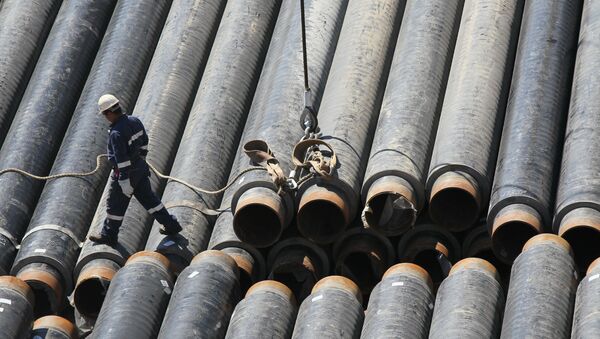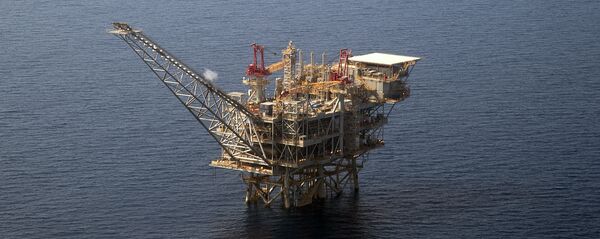First drilled in 2011, the Leviathan offshore gas field is one of the largest young gas reserves in the world, with some 450 billion cubic meters of natural gas in undiscovered reserves.
Negotiations on the construction of a 2,000-km pipeline to transport the blue fuel from the Leviathan gas field to Europe via Turkey are currently being held by Israel, Greece, Turkey, Italy and Cyprus.
$3.75 billion investment in Israel’s Leviathan gas field is largest in country's history https://t.co/Whfsj2TNOy pic.twitter.com/Wzbox0bq0c
— The Tower (@TheTowerDotOrg) 1 марта 2017 г.
In late May, media reports said that Russia's gas giant Gazprom turned down a chance to purchase a 30-percent stake in the Leviathan project without providing the reasons.
"Even so, speaking of Russia having no interest in this pipe would be too early," Volkov said, referring to the Leviathan project.
He recalled that during his visit to Israel in late June, Konstantin Kosachev, head of the Russian Upper House's International Affairs Committee, said that although Russian companies are not interested in gas production on the Israeli shelf, there is considerable mutual interest in the gasification of industry and transporting the gas on behalf of the Jewish state.
"There are too many unresolved problems to be able to confidently talk about the launch of the Israeli gas pipeline, even in 2020. That's why Gazprom took up the internal gasification of Israel instead of investing in a rather dubious project," Volkov explained.
American Noble Energy to Invest $550 Million in Israel’s #Leviathan Gas Field https://t.co/endZyQXpGz via @BINAlerts#InvestInIsrael pic.twitter.com/HbhVb4wcwS
— BlueStar Indexes® (@BlueStarIsrael) 17 февраля 2017 г.
Israel, for its part, sees the Leviathan gas pipeline as something that will help Tel Aviv fill the budget, which in turn may make this Middle Eastern country less dependent on the United States, according to Volkov.
"Given that in Israel's fuel and energy balance gas is only in third place after oil and coal, there is a large window of opportunities for the development of an internal network of local gas pipelines and local industry and transport's switch to cheap and environmentally friendly gas fuel," Volkov said, citing a spate of proposals that Russian companies have already received in this area.
On the other hand, he pointed to Turkish President Recep Tayyip Erdogan's drive to turn his country into a world natural gas trade hub, something which Volkov said prompts references to Constantinople, which was once the center of world trade in general.
"If Erdogan succeeds in laying Turkish Stream and Leviathan gas pipelines as well as Azerbaijan's TANAP and an Iranian pipe via Turkish territory, the Ottoman gas empire will pump more than 100 billion cubic meters of gas. This means huge money and the relevant status of an irreplaceable partner for everyone. So why should Russia panic? It's time for Moscow to start taking part in the project," Volkov concluded.
Gas extraction at Leviathan, which is located to the west of the Mediterranean port of Haifa and which is 6.5 times the size of Tel Aviv, is expected to provide Israel with some $300 billion over the life of the field – one-and-a-half times the national GDP.
In this vein, Leviathan is being touted as a way for Israel to become a major energy power in the Middle East.




